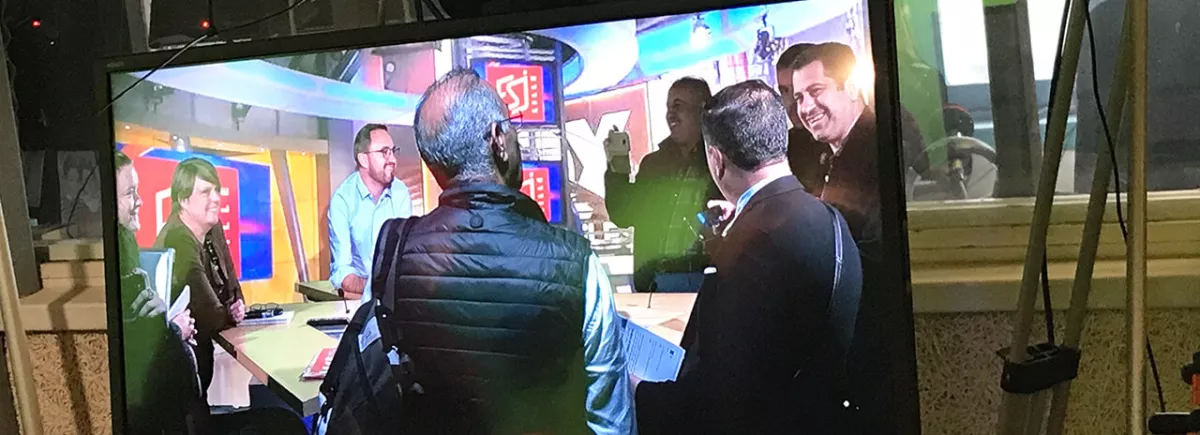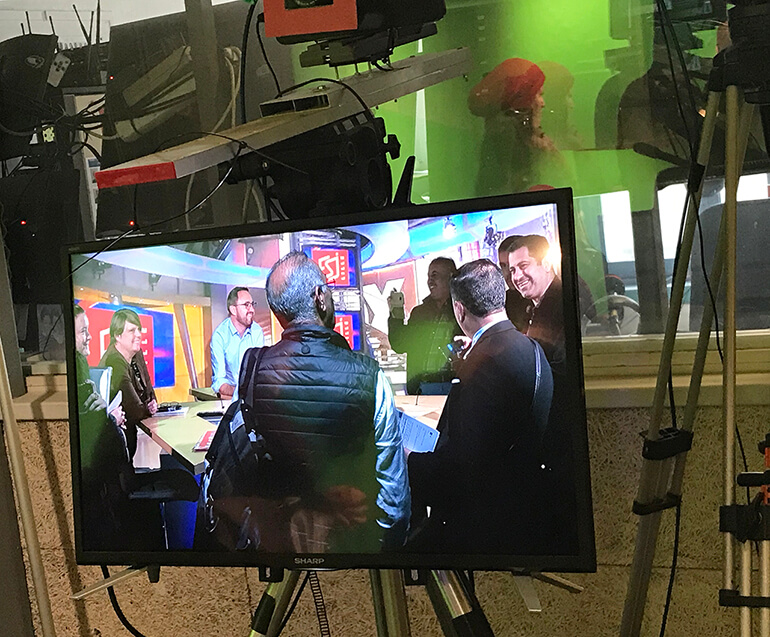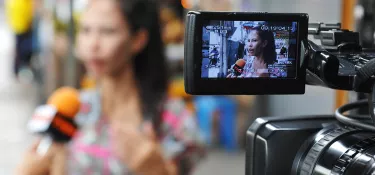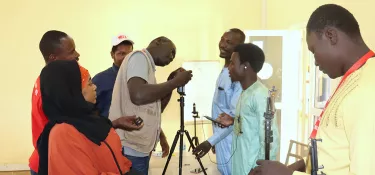
Iraqi journalists and teachers undergo training at ESJ Lille
Related project
MediaLab CampusIn conjunction with the University of Mosul, the Lille School of Journalism (ESJ Lille) ran a teacher training course in September in Lille for four teachers and two professional journalists from Iraq as part of the Medialab Campus project.
The six Iraqis' stay in France began with a visit to France Médias Monde and, in particular, to Monte Carlo Doualiya, where they were able to exchange views on journalistic practices in both France and Iraq. They then travelled to Lille for an intensive week of training and discussions.
The idea was to incorporate these practices into the teaching delivered in Mosul, a city devastated by clashes with IS. All the participants emphasised the burden of the system weighing on them and the heavy price paid during the period spent under IS rule, including the total ban on journalism under penalty of death and the many students killed.
Over the course of the week, the topics covered included dynamic learning, planning lessons and courses, gender issues and the kinds of exercises that can be used to create a group dynamic.
At ESJ, teaching is largely based on the idea of learning from mistakes, which are seen as a positive thing, the assumption being that by focusing on mistakes we are more likely to remember the principle associated with the example.

Educational and cultural differences
The course emphasised the educational value of journalist trainers as being an invaluable aid to students in recounting their professional experiences. Trainer Stéphanie Maurice provided the structure of a typical lesson in journalism at ESJ and the main topics covered: verification, information hierarchy, writing rules, angles, journalistic genres and the technical dimension of each type of media.
At the end of the week-long training course, the participants presented lessons prepared in pairs. The key takeaways were:
- teachers always need to master their subject in its entirety,
- the content of lessons must be clear and well structured (a common thread),
- answering students' questions,
- and involving them in the lesson are critically important.
The choice of teaching method and technique must take into account the learning objectives, any material constraints and the form and substance of the lesson content.
The interactions between the Iraqi and French participants were an opportunity to discuss the independence of journalism in France, particularly the (AFP). "It was a hugely rewarding experience."
"It will be difficult for me to return to an exclusively theoretical approach to teaching and learning."
Sundos Abdul Alwahhab (one of the two journalists in the group and also a doctoral student)
The head of the Media Department at the University of Mosul, Mr. Waad, announced that he has already agreed with Suha Abdulkareem, the other journalist in the group, to give short sessions at the University, since, in his view, “it's far better to listen to practitioners".
One of the participants pointed out that the difference in teaching methods, in teacher-student relationships and in the approach to journalism as a profession also comes from the cultural differences between the two countries.


